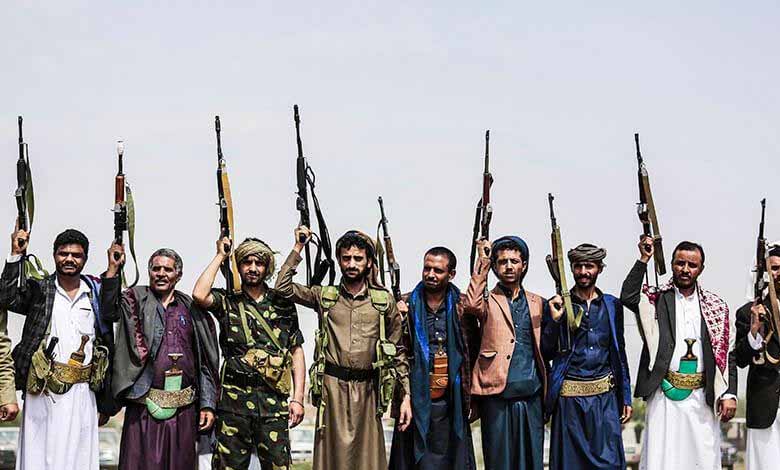Houthis and Yemen’s government fail to end Taiz blockade in talks

Negotiations between the delegations of the Yemeni legitimate government and the Houthis, sponsored by the United Nations in the Hashemite Kingdom of Jordan, reached a critical point because the Houthi delegation refused to open the main outlets in the city of Taiz (central Yemen), which it has been closing since the beginning of the war, and put forward a proposal to open alternative sub-crossings that do not meet the needs of the population for free movement and the transportation of goods, food and water.
The envoy of the United Nations Secretary-General to Yemen, Hans Grundberg, announced the end of an initial round of talks between the two parties in the Jordanian capital of Amman to open main roads in Taiz and other governorates, in accordance with the truce agreement concluded through UN mediation, AFP reported.
The UN envoy presented a formula that provides for six roads to be gradually opened within a month, and that includes an implementation mechanism and guarantees for the safety of civilian passengers, based on three days of discussions and options put forward by both sides.
Grundberg said: It is promising that the two sides will meet face-to-face to discuss the opening of roads for the first time in years, he said, calling on both sides to urgently conclude their internal deliberations and achieve positive results for the Yemeni people.
“The importance of lifting restrictions on the free movement of people and goods is not limited to the positive impact of alleviating the suffering of Yemenis and reviving their economy, but will also help enhance confidence in the political process”, he said.
Sources quoted by the London-based Al-Arab newspaper said UN special envoy to Yemen Hans Grundberg and his team made last-minute efforts to prevent the failure of negotiations centered on opening roads in Taiz and other provinces.
The head of the negotiating team for the legitimate government, Abdul Karim Shaiban, issued a statement the day before yesterday in which he confirmed that the government delegation presented its vision for the roads and the lines to be opened, pointing to the Houthi delegation’s rejection “after two days of arduous discussions in the morning and the evening and its attempt to convince them by all logical and objective means”, and referring to the Houthis’ proposal for an “old red mountain pass that was meant for the passage of donkeys and camels”, 30 kilometers away from the city and not fit for cars, according to Saba.
The head of the government delegation accused the Houthis of being intransigent, procrastinating, and failing to respond “to alleviate the suffering of 5 million people in Taiz province, even though the Houthis got everything they wanted from opening Sanaa airport, opening the port of Hodeida for the entry of oil derivatives, imposing tens of billions of tax fees on these derivatives, and adopting illegal passports. Such requests should have been implemented in conjunction with the lifting of the siege and opening of roads in Taiz, which has been ongoing for eight years”, the statement said.
Shaiban said he would stop direct dialog with the Houthis if they “did not respond by opening the roads and official lines linking Taiz to the rest of the provinces”.
Observers in Yemen said the issue of the siege of Taiz has become a cornerstone of the political process in Yemen.
Negotiations began a few days ago in Jordan between the government and pro-Iranian militias to complete the UN truce proposal, which was announced on April 1st. The truce aims to lift the siege on the province, which has a population of 5 million.
The meeting was delayed after the Houthis refused to name their representatives to the Committee on Opening Roads before returning to Amman and naming their representatives who arrived in the Jordanian capital last Wednesday.
Yet militias have so far blocked the besieged Taiz file, despite the opening of Sana’a airport and the port of Hodeida for oil derivatives.
The developments come amid warnings from the Yemeni government that the city of Taiz will continue to be besieged by Houthi militias and fears of starvation.












